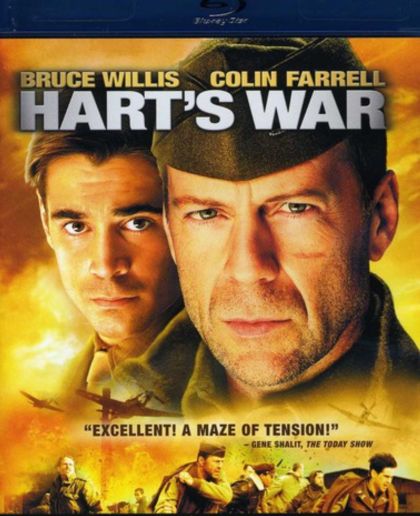Fourth-generation Army Col. William McNamara is imprisoned in a brutal German POW camp. Still, as the senior-ranking American officer, he commands his fellow inmates, keeping a sense of honor alive in a place where honor is easy to destroy, all under the dangerous eye of the Luftwafe vetran Col. Wilhelm Visser. Never giving up the fight to win the war, McNamara is silently planning, waiting for his moment to strike back at the enemy. A murder in the camp gives him the chance to set a risky plan in motion. With a court martial to keep Visser and the Germans distracted, McNamara orchestrates a cunning scheme to escape and destroy a nearby munitions plant, enlisting the unwitting help of young Lt. Tommy Hart. Together with his men, McNamara uses a hero's resolve to carry out his mission, ultimately forced to weigh the value of his life against the good of his country.
—Press kit
In the last months of the Second World War, an American administrative Lieutenant is captured by German forces during the Battle of the Bulge. Sent to a German Stalag Prison camp, Lieutenant Hart is at once thrust into the social order of POWs, where every man thinks of himself first with bribery and trading with German captors commonplace. When two African American pilots become the first non-white soldiers in the camp, one is murdered and the other accused of killing a white sergeant. Lieutenant Hart must then defend the black pilot against charges before an obviously racist American tribunal; unaware that the trial itself is only a front for the real secret of the prison camp.
—Anthony Hughes (husnock31@hotmail.com)
Shortly before the end of World War II, young, bright-eyed, First-Lieutenant Thomas Hart, a third-generation desk-warrior, is stationed in an office miles away from any fighting. He meets the war only by accident and is taken prisoner. During interrogation, Hart faces a test of honor, courage, and sacrifice he had not prepared for. Surviving the interrogation, the horrified Hart witnesses courage and honor in the acts of his fellow-prisoners, who save him from certain death by sacrificing their belongings and even their own lives. At the POW camp, Hart learns that courage, sacrifice, and honor are much harder to find, as men become embittered in their captivity. Instead, fraternization, opportunism, and racism abound, ever-encouraged by the murderous Nazis, lead by a grounded Luftwaffe colonel; and mostly tolerated by the senior-ranking American colonel, in spite of his being a 4th-generation military offcer. Col. McNamara, mostly indifferent to the goings-on of his Americans, defiantly draws the line at racism, saluting even the Russian "Untermenschen" in the neighboring compound. But this line becomes much less distinct as two downed African-American pilots join him in the American compound. Suddenly, American racism manifests itself and escalates until one of the pilots is murdered, and the other is accused of murdering one of the racist conspirators. A law-student before the war, Hart is appointed by McNamara to "defend" the court-marshalled pilot, where Hart learns that McNamara has taken great pains to guarantee a verdict of "guilty" against the lone African-American. For many prisoners, the war would be over. For Hart, it has barely begun, as he fights to find within himself the courage and honor that seems to be completely lost within the camp, and only to be had among the dead and the condemned.
—The Bright & Famous Cucumber
A law student becomes a lieutenant during World War II, is captured and asked to defend a black prisoner of war falsely accused of murder.
—Anonymous
SYNOPSIS
Belgium, December 16, 1944: First Lieutenant Thomas Hart (Farrell) is captured by German commandos during the opening of the Battle of the Bulge.
Taken to a local prison, his boots are confiscated and he is left naked in a cell. Threatened with frostbite and pneumonia, he is coerced into divulging intelligence to his German interrogator.
He and many other Americans are later transferred by train to a prisoner of war camp. While en route, a flight of P-51 Mustangs attack the station. Since the painted letters POW on the top of the train are covered by thick snow, the Mustangs fire on the train, causing some of the POWs to be killed by friendly fire. To save themselves, the POWs leave the train, spell POW with their bodies, and prevent further strafing.
After arriving at the camp, Hart is debriefed by the ranking American officer, Colonel William McNamara (Willis). When McNamara asks if he cooperated with the Germans after he was captured, Hart denies it. McNamara knows this to be a lie, since he knows Hart was held for three days after seeing only a Level 1 interrogator. He does not reveal this to Hart and sends him to bunk in a barracks for enlisted men, rather than allow him to bunk with the other officers.
Two Tuskegee Airmen are brought to the camp, Second Lieutenants, Lincoln A. Scott (Howard) and Lamar T. Archer (Vicellous Reon Shannon). They are the only blacks in the platoon, and their situation is compounded by their status as officers. Staff Sergeant Vic W. Bedford (Cole Hauser), a vicious racist, is their primary antagonist.
Later, a spike from the fence, which could be used as a weapon, is found in Archer's bunk. The Germans drag him out, and, as he stands proud and defiant, shoot him, claiming that he was trying to escape. Directly after that, a radio used by the Americans to receive coded messages via the BBC is found and destroyed.
Bedford is himself later found dead. Scott is seen standing over the body and is accused of killing him in revenge for Bedford framing Archer. A law student at Yale before the war, Hart is appointed by McNamara to defend the accused pilot at his court-martial, a trial to which the camp commandant, Oberst Werner Visser (Marcel Iures), agrees.
Visser gives Hart a manual on US Army court-martial proceedings, furthering the conflict between him and McNamara when he uses the rule book to question the Colonel's conducting of the trial. On the witness stand, the angered Scott gives an emotional address on the treatment of Blacks like himself who joined up to serve their country with honor but are treated with disrespect in return.
Late one night, Hart notices a fellow POW acting suspiciously and follows him to a room behind the theater where the trial is taking place. There he discovers a tunnel being dug. McNamara reveals to Hart that the "defense", like the trial itself, is a sham, an elaborate distraction to hide a planned escape and attack on a nearby ammunition plant which the Allies mistakenly believe to be a shoe factory. It is revealed that Bedford planted the spike in Archer's bunk, and, in return for the guards executing him for it, gave them the location of the secret radio. It is also revealed that Bedford planned to escape with forged German documents, money and clothes, likely in return for telling the Germans about McNamara's plan. McNamara realized this and killed Bedford to prevent it.
Hart is shocked that McNamara as a senior officer would sacrifice fellow Americans to perpetuate this. McNamara reminds Hart that they are at war, and in war sometimes one man must be sacrificed to save the lives of many. Hart acknowledges this, but retorts that it is McNamara's duty to ensure that he, not Scott, is the sacrifice. Disgusted, McNamara says that Hart knows nothing about duty, in reference to how Hart gave in to a Level 1 interrogator after three days, whereas McNamara was tortured for a month.
On the last day of the trial, McNamara and 34 others feign food poisoning in order to be excused from the closing arguments. They then slip down the escape tunnel. As he is about to go down, McNamara overhears Hart's closing speech. In order to save Scott, Hart announces that he killed Bedford.
Visser orders everyone out and announces that Hart will be shot there and then. After the head count is short by 35 prisoners, Visser suspects an escape plot and locates the tunnel. Now fully aware of the deception, he furiously orders everybody involved in the trial to be shot. But before the sentence is carried out, McNamara, moved by Hart's selfless sacrifice, voluntarily returns to the camp to accept responsibility. At that moment the factory blows up and the other escapees scatter away.
Visser holds McNamara accountable and personally executes him on the spot, sparing the remaining prisoners. Scott leads the salute to McNamara's dead body. Three months later, the German army surrenders to the Allies and the prison camp is liberated.



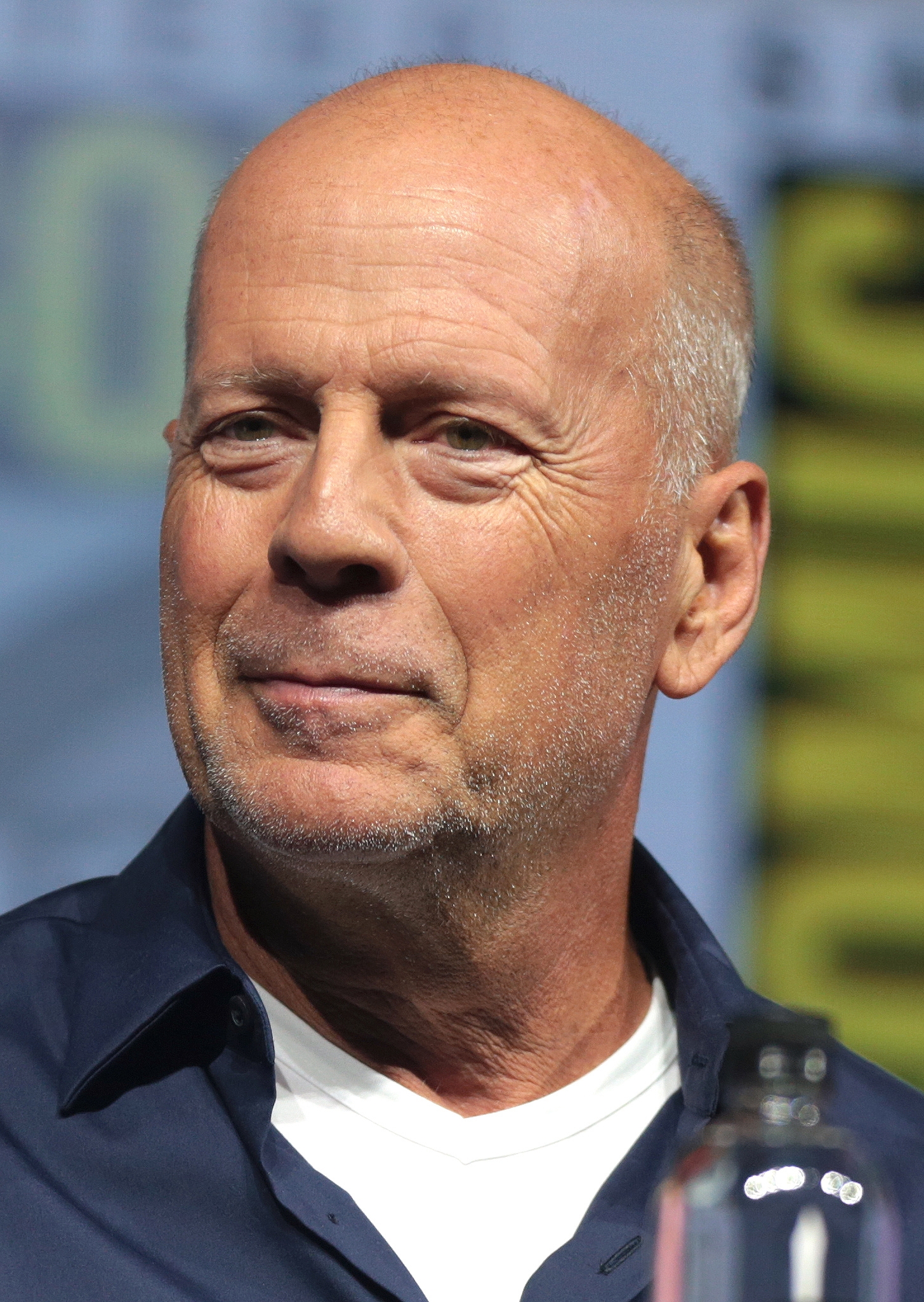
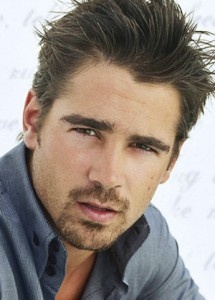
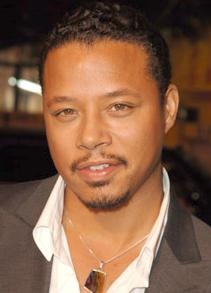
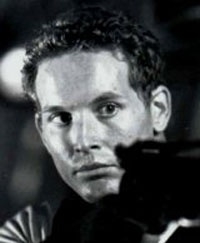
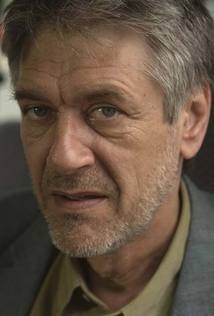

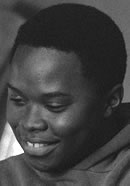
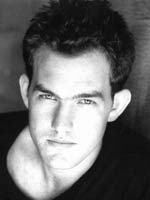

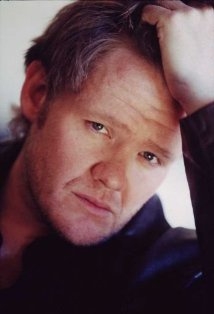
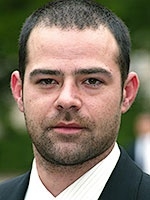

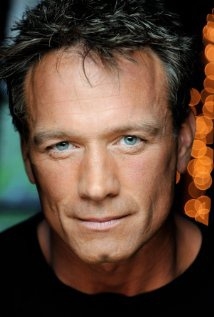

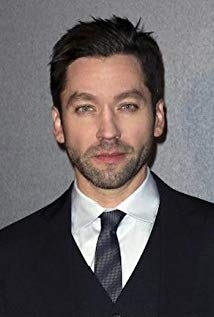

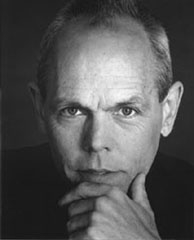


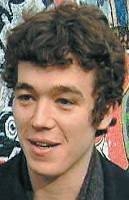

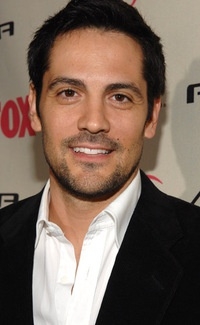
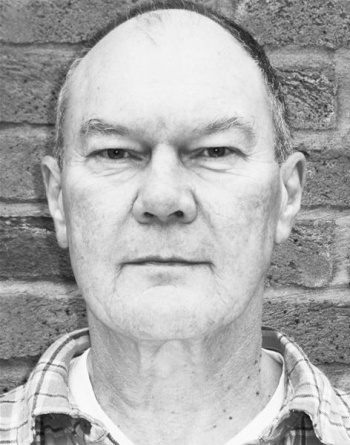

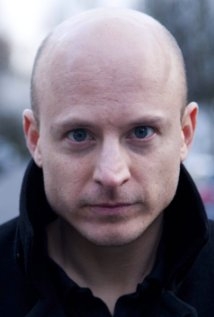



 English
English  Nederlands
Nederlands  Deutsch
Deutsch  Français
Français  Español
Español  Magyar
Magyar  српски
српски  Dansk
Dansk  Italiano
Italiano  Svenska
Svenska  Slovenčina
Slovenčina  Português
Português 
